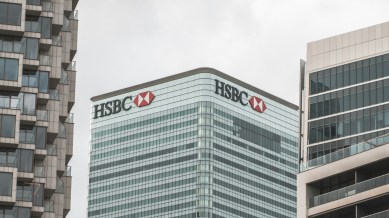HSBC Global upgrades India to overweight even as Asian markets rally 20 pc in 2025
Asian markets have gained an average of 20 per cent so far this year, even as foreign investors turned net sellers, according to the report.

HSBC Global Investment Research has upgraded Indian markets to overweight, stating that the country now stands out as an attractive investment destination. “India now appears attractive on a regional basis: we move to overweight from neutral,” the report stated, signalling a stronger preference for Indian equities relative to other Asian markets.
Asian markets have gained an average of 20 per cent so far this year, even as foreign investors turned net sellers, according to the report. The resilience comes largely from strong participation by domestic retail investors, particularly in mainland China, where households are sitting on significant cash reserves and channelling them into equities.
monthly limit of free stories.
with an Express account.
Why India has been upgraded
In stark contrast to the crowded trades in Korea and Taiwan, India is Asia’s quiet corner. Although foreign funds have withdrawn significant amounts from India in the last 12 months, a period in which the market has seriously underperformed, local investors have remained resilient. “While earnings growth expectations can fall a little further, valuations are no longer a concern, government policy is becoming a positive factor for equities, and most foreign funds are lightly positioned,” HSBC report said.
“We think Indian equities now look attractive on a regional basis and upgrade the market to overweight (from neutral). As in China, US tariffs will have little impact on the profits of most listed companies,” it said.
Foreign players sell in Asia
HSBC said foreigners are net sellers in Asia this year, which is normally bad news for regional stock markets. Yet the market is up by an average of 20% and for that we can thank local retail investors, especially those in mainland China who are sitting on a mountain of cash. “Another feature of Asian markets is overcrowded trades, especially in companies related to AI in north Asia. The concern is that even a small deviation from sky-high investor expectations might lead to sharp corrections,” it said.
China: Now what?
After a strong run in Chinese equities, especially in Hong Kong, it’s only natural to question whether this momentum will continue, HSBC said. Valuations are elevated, but not excessive. However, with retail investors sitting on USD22trn in cash, some of which is gradually being re-allocated to stocks, we expect Chinese equities to grind slowly higher. “After the rally in H-shares – mainland Chinese investors have added a staggering US $ 140 billion. more than double the annual average of US $ 60 billion in the last three years – to their portfolio of stocks listed in Hong Kong this year, we think it’s time to build exposure to A-shares alongside H-shares.
H-shares are shares of companies incorporated in mainland China that are listed on the Hong Kong Stock Exchange (HKEX) and traded in Hong Kong dollars (HKD).
Far East markets
HSBC said investors like to play AI through these markets, especially Korea and Taiwan, which are now very crowded trades. Valuations have run up and in Japan, the weaker Yen has also supported equities. “Corporate governance is a positive long-term theme in Japan and Korea, but it won’t carry markets on its own. After the recent run-up in equities, we downgraded Korea to underweight in mid-August,” it said.
In ASEAN, investor confidence is low. Politics dominates the headlines in Thailand and Indonesia; for the latter, fiscal prudence is on the radar screen after a cabinet reshuffle, HSBC said.